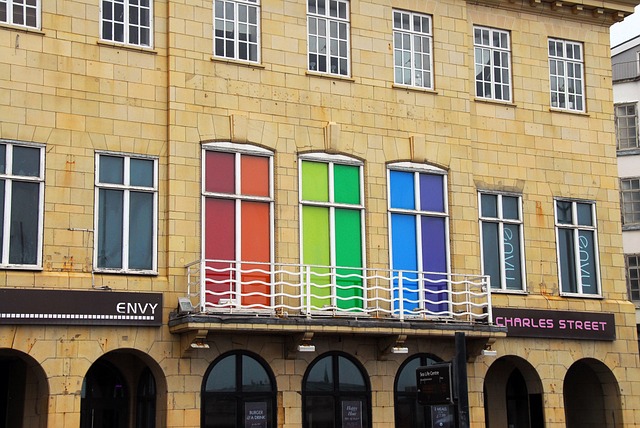LGBTQ + Activism
LGBTQ+ rights are about ensuring that lesbian, gay, bisexual, transgender, queer, and other gender and sexual minority individuals are treated with dignity, respect, and equality under the law.
By advocating for LGBTQ+ rights and embracing diversity, we can create a more inclusive and compassionate world for everyone.
LGBTQ+ equality means that everyone, regardless of their sexual orientation or gender identity, should have the same rights and opportunities as everyone else.
This includes things like the right to marry the person they love, the right to be protected from discrimination in employment and housing, and the right to access healthcare services that affirm and support their gender identity and sexual orientation.
By supporting laws and policies that promote LGBTQ+ equality, we can ensure that everyone has the freedom to live their lives authentically and without fear of discrimination.
LGBTQ+ activism is the work that people do to advocate for LGBTQ+ rights and raise awareness about issues affecting LGBTQ+ individuals and communities.
This can include things like organizing protests, lobbying lawmakers, educating the public, and providing support and resources to LGBTQ+ people in need. By standing up for LGBTQ+ rights and speaking out against injustice, we can help create a more equitable and inclusive society for all.
The Pride movement is a global movement that celebrates LGBTQ+ identity, history, and culture, and promotes LGBTQ+ rights and acceptance.
Pride events, like parades, festivals, and marches, bring together LGBTQ+ people and allies to celebrate diversity, raise awareness about LGBTQ+ issues, and advocate for equality and justice.
By participating in Pride events and showing support for the LGBTQ+ community, we can help foster a sense of belonging and pride among LGBTQ+ individuals and promote acceptance and understanding in our communities.
Anti-discrimination laws are laws that protect people from being discriminated against based on their sexual orientation or gender identity.
These laws prohibit discrimination in areas like employment, housing, education, and public accommodations, and provide legal recourse for people who have experienced discrimination. By advocating for and enforcing anti-discrimination laws, we can help ensure that LGBTQ+ people are treated fairly and equally in all aspects of life.
Marriage equality is the legal recognition of same-sex marriage, allowing LGBTQ+ couples to marry and have their marriages recognized by the government.
Marriage equality is a fundamental human right that ensures that LGBTQ+ couples have the same rights and responsibilities as heterosexual couples, including the right to make medical decisions for their partners, the right to inherit property, and the right to access benefits like health insurance and social security.
By supporting marriage equality, we can help create a more just and inclusive society where all families are valued and respected.
Gender identity is a person’s internal sense of their own gender, which may be different from the sex they were assigned at birth.
Gender identity is a deeply personal and individual experience, and transgender and nonbinary people should be treated with dignity, respect, and acceptance.
By respecting people’s gender identity and using their chosen name and pronouns, we can create a more inclusive and affirming environment for transgender and nonbinary people
.
LGBTQ+ youth support is essential for ensuring that LGBTQ+ young people have the resources, support, and affirmation they need to thrive.
LGBTQ+ youth are more likely to experience bullying, harassment, and discrimination than their heterosexual and cisgender peers, which can have serious consequences for their mental health and well-being.
By creating safe and supportive spaces for LGBTQ+ youth, providing access to LGBTQ+-affirming healthcare and counseling services, and promoting LGBTQ+ representation and visibility in schools and communities, we can help LGBTQ+ young people feel valued, supported, and empowered to be their authentic selves.
Safe spaces are places where LGBTQ+ people can be themselves without fear of judgment, discrimination, or violence. Safe spaces can be physical spaces, like LGBTQ+ community centers, bars, and clubs, as well as online spaces, like social media groups and forums.
By creating and supporting safe spaces for LGBTQ+ people, we can help foster a sense of belonging and community and provide essential support and resources to those who need it most.
LGBTQ+ health care is healthcare that is inclusive, affirming, and respectful of LGBTQ+ people’s identities and experiences.
LGBTQ+ people face unique healthcare challenges, including disparities in access to care, discrimination from healthcare providers, and a lack of culturally competent and affirming services.
By promoting LGBTQ+ healthcare equity, training healthcare providers on LGBTQ+ health issues, and advocating for policies that ensure LGBTQ+ people receive the care and support they need, we can help address these disparities and improve health outcomes for LGBTQ+ individuals and communities.
LGBTQ+ history is the history of LGBTQ+ people, movements, and struggles for equality and acceptance throughout history.
LGBTQ+ history is often overlooked or erased from mainstream narratives, but it is an essential part of our shared history and heritage.
By learning about LGBTQ+ history, we can honor the contributions and sacrifices of LGBTQ+ activists and pioneers, celebrate our progress towards equality, and draw inspiration and strength from those who came before us.
In conclusion, advancing LGBTQ+ rights is about creating a world where everyone, regardless of their sexual orientation or gender identity, can live their lives authentically and without fear of discrimination or violence.
By supporting LGBTQ+ equality, advocating for anti-discrimination laws, and creating safe and affirming spaces for LGBTQ+ people, we can help build a more inclusive and compassionate society where everyone is valued, respected, and celebrated for who they are.

